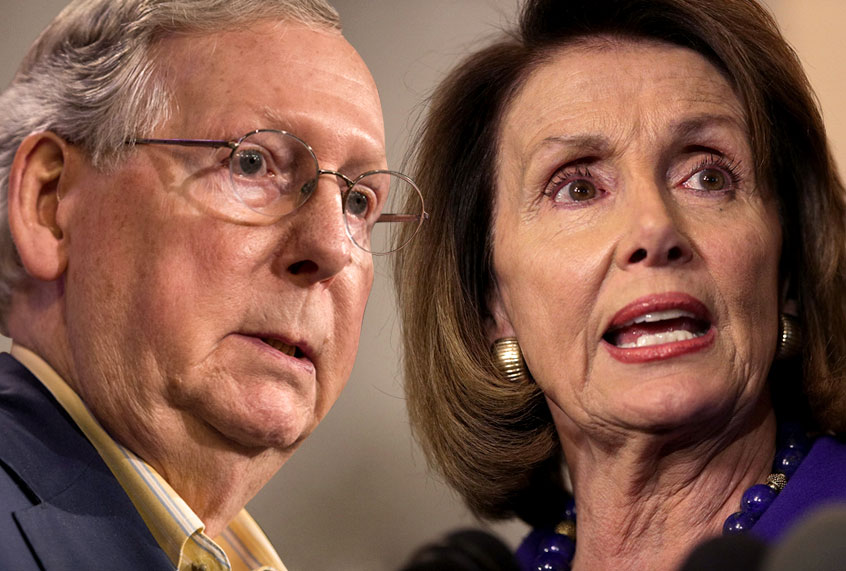Speaker of the House Nancy Pelosi called Senate Majority Leader Mitch McConnell “Moscow Mitch” amid his continued refusal to advance legislation that would safeguard American elections from Russian interference.
“Moscow Mitch says that he is the ‘Grim Reaper.’ Imagine describing yourself as the ‘Grim Reaper’ — that he’s going to bury all this legislation,” Pelosi told an audience at a political event Wednesday in Illinois.
Pelosi added that election security legislation passed in the House of Representatives was “live and well in the general public.” In response to her remarks, McConnell spokesman David Popp highlighted a passage from a speech delivered by the Senate majority leader last month when the unflattering nickname first began to stick.
“Now, here we are in 2019. Again, (Russian President Vladimir) Putin and the Russians seek to provoke fear and division in our country. To undermine faith in our institutions. To exacerbate our political differences until we tear ourselves apart,” McConnell said at the time. “And, once again, it seems there are some who blindly take the bait. American pundits calling an American official treasonous because of a policy disagreement. If anything is an asset to the Russians, it is disgusting behavior like that.”
McConnell’s connections to Russia span beyond the fact that the foreign nation meddled in the 2016 presidential election to help a fellow Republican, President Donald Trump, win the White House.
A recent report by The Washington Post revealed that Craig Bouchard, a politically influential businessman with connections to Kentucky, pursued the construction of an aluminum-rolling mill, which could benefit Rusal, a powerful Russian aluminum producer, in northeastern Kentucky. McConnell used his power as Senate majority leader to block Democratic efforts to keep economic sanctions in place against Russia, which would have thwarted the deal. Within weeks, the federal government had lifted sanctions on Rusal.
Former U.S. Ambassador Michael McFaul, who represented the Obama administration in Russia, told the Post that “it is shocking how blatantly transactional this arrangement looks.” Brouchard, for his part, insisted that no one from his company, Braidy Industries, told any American official that lifting the economic sanctions on Russia would assist with his aluminum-rolling mill.
Although McConnell has repeatedly referred to the nickname “Moscow Mitch” as a form of “McCarthyism,” the term does not actually refer to accusing someone of being close to Russia. McCarthyism was a tactic pioneered by a 1950s senator, Joseph McCarthy of Wisconsin, to smear anyone who was perceived as too left-wing of being a covert communist. Because the main nation advancing the cause of communism in that era was the Soviet Union, this in turn implied that one could be working for the most powerful nation within that empire.
By definition, McCarthyist smears were also baseless. In contrast, former special counsel Robert Mueller’s report revealed that members of Trump’s campaign knew that Russia was interfering in America’s election in a manner that was not only illegal but “sweeping and systematic,” and they actively encouraged them to do so. Trump himself publicly asked Russia to dig up dirt on Democratic nominee Hillary Clinton during a press conference that July, and one month earlier the president’s son and assorted other advisers (including campaign chairman Paul Manafort, who had helped install a puppet of Russian President Vladimir Putin as president of Ukraine) met with a Kremlin-connected lawyer to likewise obtain “dirt” on Clinton. None of these things are open for dispute.

